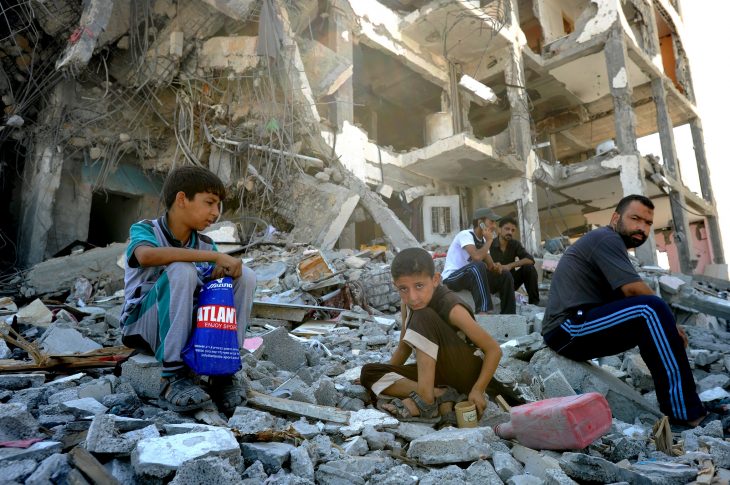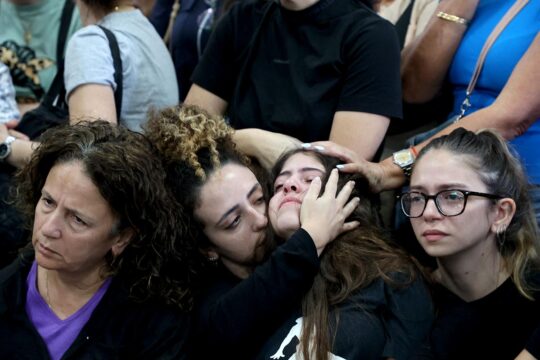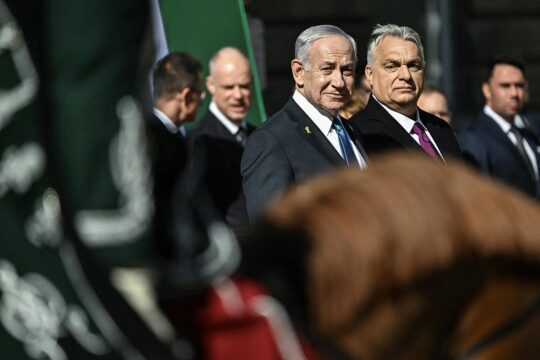Israeli Military Prosecutor Danny Efroni said he was closing a case on the deaths of four Palestinian children killed by an Israeli missile on July 16, 2014, while playing football on a beach in the northern Gaza Strip. In so doing he meets approval from the majority of Israelis, for whom Tsahal remains “the most moral army in the world”.
But Efroni, who also dismissed last week two other cases related to the deadly bombings of civilian homes during operation “Protective Edge” (the fifty-day war which set Palestinian factions against the Jewish State in summer of 2014), unleashed a wave of anger in the West Bank and Gaza Strip. It also pushed leaders of the Palestinian Authority (PA) to speed up proceedings they had begun against Israel at the International Criminal Court (ICC) for “war crimes” and “crimes against humanity.”
ICC preliminary investigation
Palestine’s judicial steps are highly embarrassing for Benjamin Netanyahu and other Israeli leaders, especially as the proceedings are slowly getting underway. On June 25 the Palestinian Authority will hand to the office of ICC Prosecutor Fatou Bensouda information in support of its accusations against Israel. This information concerns the last three major Israeli military operations in the Gaza Strip, as well as continuing Israeli settlement of the West Bank and East Jerusalem (the Arab part of the city).
Two days later, in the context of an ongoing ICC preliminary investigation, members of the Prosecutor’s office will travel to Jerusalem to gather more information. This visit will take place several days after the publication of a report by the commission set up in autumn 2014 by the United Nations Human Rights Council to investigate operation “Protective Edge”. William Shabas, the Canadian professor who had been appointed to head the commission, resigned after Israel accused him of pro-Palestinian bias and was replaced by American judge McGowan-Davis. In any case, the Palestinian Authority says it will use the report before the ICC, and will do the same with the report of the Richard Goldstone commission on the December 2008 operation “Cast Lead”.
But Israel, whose greatest fear is to see its civilian and military leaders summoned to appear before the court for “war crimes”, has long been preparing for a legal battle. Netanyahu’s entourage in Jerusalem point out that although Israel did sign the Rome Convention, founding treaty of the ICC, it has never ratified it, unlike the PA, which became an ICC member in April 2015.
According to defenders of Israeli policy, Israel is likely to argue that any lawsuit brought against its citizens is inadmissible under the subsidiarity principle, which says cases being prosecuted in the State in question cannot be prosecuted by the ICC in The Hague.
This brings us back to Efroni, the Israeli Military Prosecutor. His office may not find it easy to show that it has led investigations into cases considered “war crimes” by the Palestinians, that officers and soldiers have been questioned – some have even been placed in preventive detention – but that all this did not bring any indictments.
In the last six months, the Israeli Military Prosecutor’s Office has increased investigations related to operation “Protective Edge”. There are more than a hundred now under way, so, to the great disappointment of the Palestinian Authority, the ICC has little chance of ever trying them.






